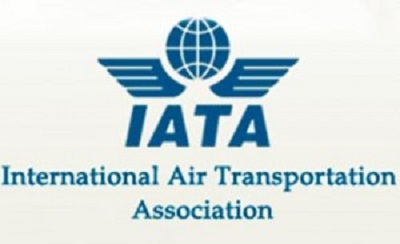Forex Restriction: ANLCA Warns FG To Thread Cautiously
By Kenneth Jukpor
Following President Mohammadu Buhari’s directive to the Central Bank of Nigeria (CBN) to withdraw foreign exchange for importation of food, the Association of Nigeria Licensed Customs Agents (ANLCA) has warned the government that the decision could be counterproductive.
The President of ANLCA, Mr. Tony Iju Nwabunike admonished the government to thread cautiously to avoid inflicting more economic woes on Nigerians.
Nwabunike who was speaking to MMS Plusduring an exclusive chat at the ANLCA national secretariat in Lagos, lamented that the previous forex restriction on forty-one items have not yielded the desired results.
According to him, such move to restrict forex on food should have followed a systematic process with a five-year awareness campaign by the government on the plan to restrict forex on agricultural products and the need for citizens to venture into agriculture.
“There has to be a strategic plan. For instance they could come up with a five year plan to sensitize Nigerians on the need to go into agriculture and have strategic agricultural plan for various products” he said.
Noting that the government may have taken the decision to boost the benefits of the African Continetal Free Trade Agreement (AfCFTA), he warned that the decision could lead to austere economic times in the country.
“With AfCFTA in view, the government is looking at improving the nation’s production but if not adequately managed, this could lead to austere measures and become counterproductive” he added.
Meanwhile, the Nigeria Employers’ Consultative Association and the Centre for Social Justice say the directive by President Buhari to CBN to withdraw foreign exchange for importation of food is coming at a wrong time.
They made their views known in separate statements made available to our correspondent.
The Lagos Chamber of Commerce and Industry, on the other hand, called for a clarification on the food items to be restricted from foreign exchange allocation.
However, President Buhari had stated that there will be steady improvement in agricultural production and attainment of full food security with the directive.
The President said some states like Kebbi, Ogun, Lagos, Jigawa, Ebonyi and Kano had already taken advantage of the federal government’s policy on agriculture with huge returns in rice farming.
However, the NECA in its statement said though the initiative was laudable, the country could not afford such policy now as it had yet to attain self-sufficiency in food production.
The Director-General, NECA, Mr. Timothy Olawale, who spoke for the association, said that a wholesale immediate withdrawal of forex for food importation without giving a buffer period for businesses to adjust might have serious consequences on the economy.
“We note most especially the Agricultural Promotion Policy championed by the Federal Government through the Federal Ministry of Agriculture and Rural Development since 2016. Though the recent thrust towards withdrawal of forex for imported foods is laudable and welcome, the timing, however, calls for concern.”
Olawale noted that the argument of conserving foreign exchange through the withdrawal or ban of forex for food importation was not tenable.
He advised that rather than a blanket withdrawal of forex on food and milk importation, a gradual withdrawal with a buffer period of not less than five years should be given.
Similarly, CSJ, in a statement by its Lead Director, Eze Onyekpere, said the presidential directive was illegal.
The group said that the directive was based on a false premise, as there was no evidence to show that the Federal Government’s agricultural programmes had led to self-sufficiency in food production in the country.
Reacting to the directive, the Director General, LCCI, Mr. Muda Yusuf, asked for details on what constitute food in the context of the presidential directive.
Yusuf said, “First, there is a need to get more details and clarifications on what exactly constitutes food items in the context of the presidential directive. The harmonised system codes of the items affected need to be indicated.
“It is hoped that these details would be made available in subsequent releases by the CBN. This is essential for proper analysis of the possible impact on investment, welfare of citizens and the economy. We need to worry about the implications of policy pronouncements for investors’ confidence and the general sentiments of investors” he said.









